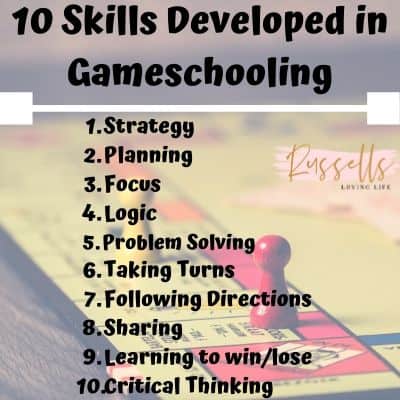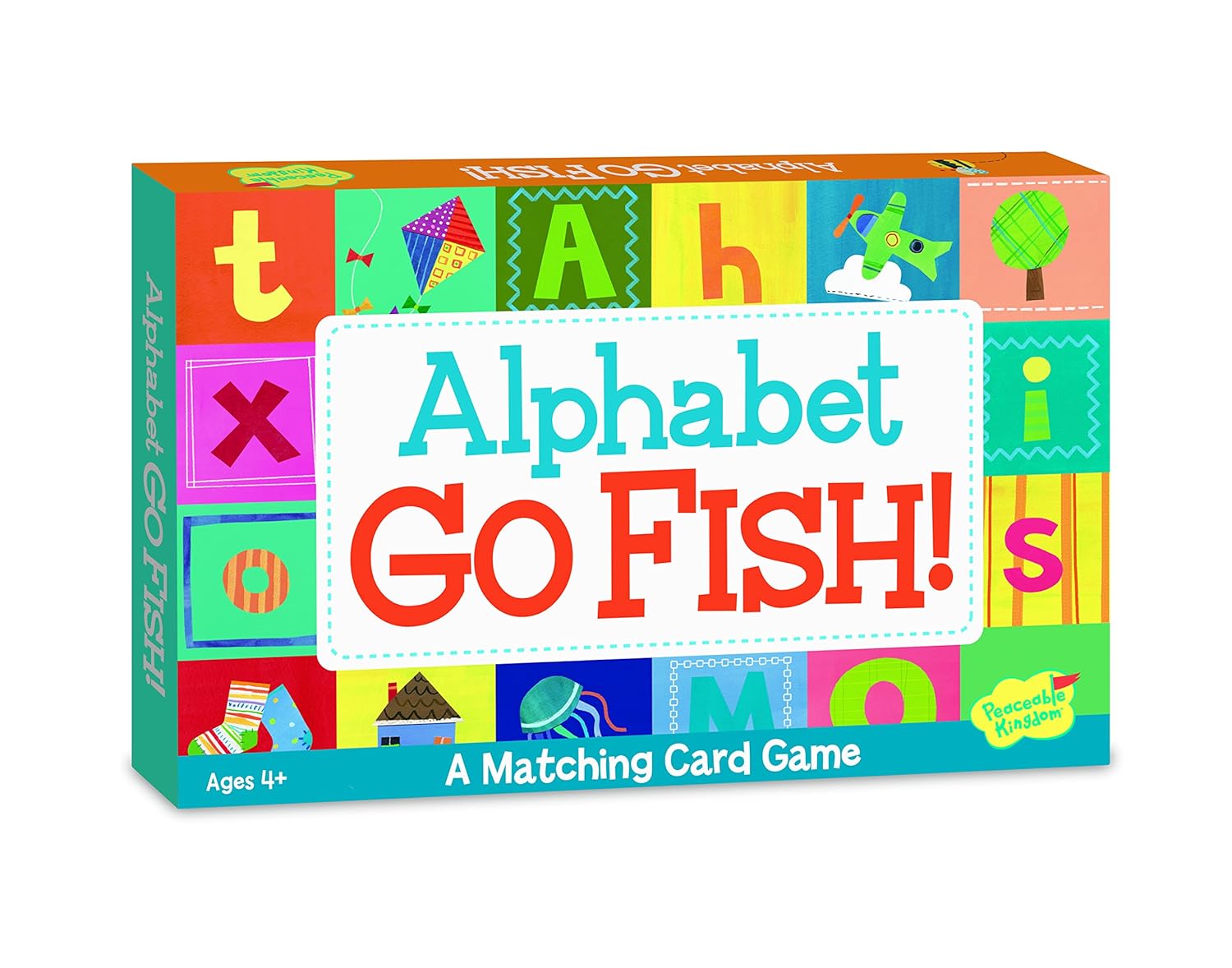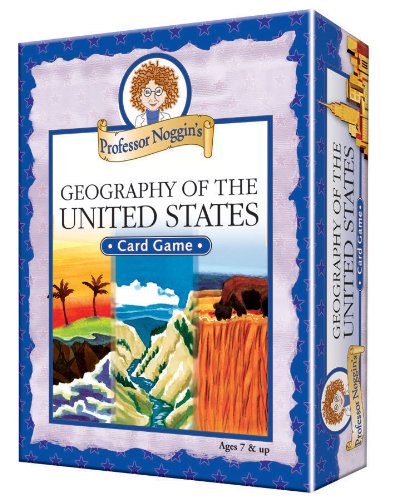Over the years, I have heard of homeschooling families using gameschooling and wanted to know more about it. Here is what I found.
Gameschooling is when a board game is used to help a child learn a particular skill or to learn more about a subject. Gameschooling is a fun way for kids to learn more about a subject and have fun at the same time. Homeschool families decide to game school instead of using a curriculum for a given subject.
Gameschooling may not work for every family and every family homeschools differently. But here are some things I have learning about gameschooling.

10 Skills Developed In Gameschooling
- Strategy – Strategy helps the children to make a plan to reach their goals in the game.
- Planning – Planning help the children to learn how to a organize their thoughts to make something happen.
- Focus – Focus teaching the children how to pay attention to what is right in front of them.
- Logic – Logic helps the children to learn a chain of reasoning.
- Problem Solving – Problem Solving teaching the children how to find the answer or solution to an issue.
- Taking Turns – Taking turns helps children to learn patience and that other like to have fun too.
- Following Directions – Following directions help children to learn how to listen and do what is expected of them.
- Sharing – Sharing teaching children that others like to have fun too.
- Learning to win and lose – Learning to win or lose can be a hard thing to learn for any age. But playing a board game teaches children that you are not always going to win.
- Critical Thinking – Critical thinking teaching the children how to come to a reasonable conclusion on their own.
5 Tips for picking the best games for your family:
- How many players – Most games are designed for 4 players, so always read to see how many players are required for the game.
- Recommended Age – Always look at age recommendations on the board games. You want to pick a game that fits your needs.
- Difficulty Level – When you are gameschooling you want it to be difficult and fun at the same time. You never want to pick a game that is too difficult.
- Durability – Buying board games can be expensive, so you want to make sure they are durable and will hold up for a few years.
- Easy to Learn – When you are gameschooling you want to make sure that learning how to play the board game is easy to learn. If the game is too difficult to learn how to play, they children will not learn anything from it.
Gameschooling by Subject
There is a learning game for every subject. Here is a list of games broken down by subjects and an Amazon descriptions. If this list does not have any games that fit your needs, you can always search board games by subjects on Amazon. Some homeschool family do 100 gameschooling and some just gameschool for a specific subject.
Language Arts
Language Arts is made up of grammar, writing, spelling, and composition.
Social Studies
Social Studies is made up of history, government, economics, civics, sociology, and geography.
Science
Science is made up of physics, chemistry, and biology.
Math
STEM
STEM is made up of science, technology, engineering and mathematics.
Logic
Logic is based on reason and sound ideas.
Children Learn Through Play
Children have been learning through play from a very early age. They learn to talk through playing games. Parents hold up an object and teach their children how to say its name and what it looks like. Children learn to play pretend, how to count, and their ABCs through songs and playing. When children play, they learn language skill, social skills, and self control.
7 Ways Children Learn
Every child learns in their own way. Being a homeschool mom of more than one child I have figured that out, but I did not know what the learning styles were called until I looked in to them. This is what I learned.
- Visual Learner also known as a Spatial Learner – Visual or Spatial learners learn better by graphs, tables, charts, maps, colors, diagrams, flash cards or watching educational videos. They sometime tend to look at the big picture and miss the details.
- Aural Learner also known as an Auditory Learner – Aural or Auditory learners learn better by listening. They tend to do better is a lecture style of environment. Aural or Auditory learners also tend to learn better by engaging in conversations, listening to music and videos.
- Verbal Learner also known as an Linguistic Learner – Verbal or Linguistic learners learn best by writing or speaking. They tend to learn better by language reasoning than abstract information. Verbal or Linguistic learning are usually better at word problems then they are at solving equations.
- Physical Learner also known as a Kinesthetic Learner – Physical or Kinesthetic learners learn better through movement rather than from a lecture. They learn through body movement, control or expression.
- Logical Learner also known as a Mathematical Learner – Logical or Mathematical learners learn by problem solving, statics and facts, using numbers or their ability to reason. They usually learn by using visual, kinetic and auditory learning styles. Logical or Mathematical learners learn best in an organized space.
- Social Learner also known as an Interpersonal Learner – Social or Interpersonal learners tend to work well in a group and flourish on building relationships. They tend to communicate well through verbal and non verbal communication. Social or Interpersonal learners are also referred to as “people smart.”
- Solitary Learner also known as an Intrapersonal Learner – Solitary or Intrapersonal learners learn better when they work alone. They are self-motivated, concentrate well, and think independently. Solitary or Intrapersonal learners need a distraction free space to learn.
I hope this helps you to understand a little more about Gameschooling and the different ways children learn.
If you have homeschool questions, Click Here to see if I have the answers.























